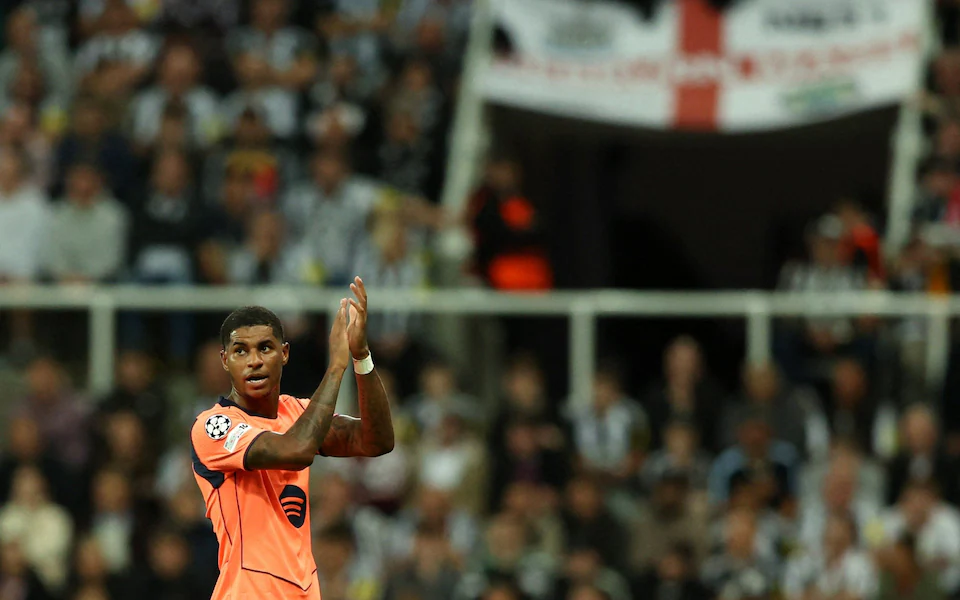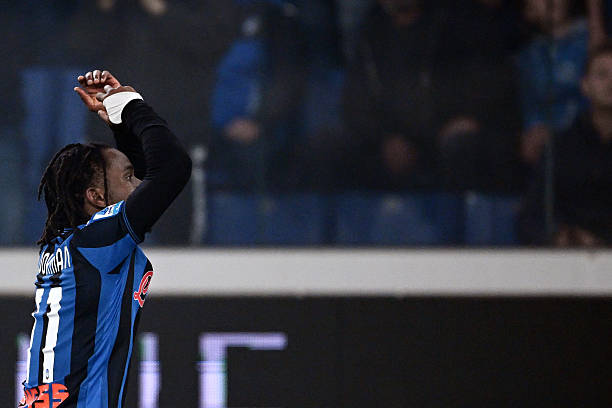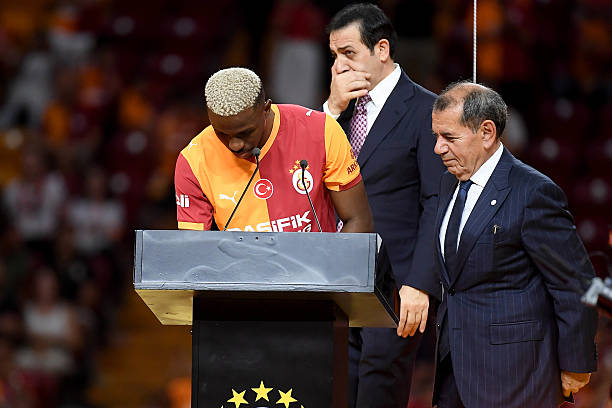Across Africa, football fandom isn’t just about 90 minutes on the pitch—it’s a way of bringing communities together. Last night’s UEFA Champions League clash between Barcelona and Newcastle United sparked excitement from busy Lagos parks to Accra’s lively viewing centers, as fans gathered to witness Marcus Rashford deliver a performance to remember. According to many enthusiasts, matches like these are more than mere entertainment; they represent the aspirations of countless young African footballers and unite people across languages and borders.
Rashford’s Breakout Night on the European Stage
Making his Champions League debut for Barcelona, Marcus Rashford reportedly justified the hype surrounding his move from Manchester United, finding the back of the net twice to seal a 2–1 win against a tenacious Newcastle side at St James’ Park. According to official match reports from UEFA, this victory strengthens Barcelona’s hopes in what some analysts have called a “group of death” this season.
The night, however, was not without drama. In the dying minutes of stoppage time, Newcastle’s Anthony Gordon cut Barcelona’s celebrations short—at least temporarily—with a well-executed goal. Yet, as many fans observed, this late strike did little more than provide consolation, as the Spanish giants had already taken command with two second-half goals.
Missed Chances and Turning Points
According to post-match analysis by local sports broadcasters in Nigeria, Newcastle had golden opportunities to upset their illustrious opponents. Early in the encounter, an incisive cross from Elanga set Gordon up for what seemed a certain goal, but the young forward could not convert from close range. For fans at Enugu’s famed football houses, this was the kind of miss that seasoned supporters know might haunt a team for 90 minutes—and so it proved.
In contrast, Barcelona demonstrated clinical precision. Jules Koundé, showing composure under pressure, delivered a precisely weighted cross which Rashford met on the penalty spot. The England international drove a powerful header into the bottom corner, sending the away fans into raptures and silencing Newcastle’s home crowd.
Rashford Doubles Up and Dominates
As the match progressed, it became clear that Rashford was determined to make his mark. Midway through the second half, he collected the ball near the edge of Newcastle’s penalty area. According to the BBC’s live commentary, Rashford artfully worked space for himself and unleashed a dipping strike that crashed off the crossbar and into the net—an effort many fans are already calling one of the tournament’s standout goals so far.
Local pundits, such as Abuja-based analyst Chuka Ejiofor, noted: “That second goal showed not just confidence but real technical ability—the type our local academy players train every day to emulate.” Nigerian football fans have often looked up to Rashford as an inspiration, given his community outreach and humble beginnings.
Game Management and Spanish Composure
With a comfortable lead established, Barcelona reportedly slowed the tempo, prioritizing ball retention and disciplined positioning. According to La Liga analyst Pedro Oliva, “Barcelona’s command over possession in the closing stages was a masterclass on how to manage a Champions League away fixture.” Newcastle, for all their passionate support and relentless energy, struggled to break down the Spanish side’s organized defense.
While some Newcastle fans hoped for a late surge—especially after Gordon’s goal—the Catalan side shut down further threats with measured play, ensuring their three points would travel back to Spain. This kind of European resilience is something Nigerian clubs are striving to develop as domestic leagues gain in quality and international participation.
West African Impact and Inspiration
For football lovers across Nigeria, Ghana, and the wider West African region, Champions League nights are more than European spectacle—they spark dreams and conversations. Local coaches like Ibadan-based Adebayo Kayode highlighted the importance of youth watching these matches: “When young players see Rashford’s movement and composure, it inspires them. It shows what is possible with hard work and discipline, no matter your background.”
In communities across West Africa, football viewing centers transform into hubs for discussion, debate, and analysis with each major European tie. According to a recent report by CAF, Champions League viewership in Nigeria and Ghana has increased steadily, reflecting the region’s deepening investment in European football culture and its economic impact—from merchandise sales to local hospitality businesses.
Global Reactions and Looking Ahead
Barcelona’s victory, powered by Rashford’s heroics, quickly became a trending topic on West African social media. Popular online forums and WhatsApp groups were abuzz with memes, cheeky predictions, and spirited debates about Rashford’s future in Catalonia. Meanwhile, voices from the continent’s broader football community—such as ex-Super Eagles midfielder Austin Okocha—commended the display, noting on local TV that “these are the performances we love to see from players with African roots or ties.”
Newcastle supporters, meanwhile, remain optimistic, stressing the importance of building on this experience and learning from missed opportunities in future European encounters. Others pointed out the progress English teams have made, especially in nurturing young talent through robust academies. This level of investment, according to Lagos coach Ngozi Umeh, is “something we must replicate in Nigeria to take our own teams and players to the next level.”
Comparisons to Past Champions League Clashes
The atmosphere at St James’ Park—both tense and electric—is reminiscent of high-profile encounters involving African stars like Didier Drogba, Yaya Touré, or Michael Essien. Fans interviewed by Ghana Football News reflected on how past and present Champions League heroes continue to inspire Africa’s rising generation. While Rashford hails from England, his story resonates across the continent, as many see in him traces of the determination, community spirit, and ambition that define West African football culture.
Off the Pitch: What This Means for Africa
Aside from the on-field success, matches like this have broader social and economic relevance for Nigeria and the wider region. Viewing parties across Lagos, Kano, Accra, and Kumasi boost the local economy. Merchants report spikes in sales of club jerseys, snacks, and drinks on Champions League nights. Meanwhile, sports academies and after-school programs use these games to inspire young talents, citing role models like Rashford and Barcelona’s youth system.
Looking Forward: Challenges and Opportunities
While West African football continues to grow, challenges remain—including limited infrastructure, inconsistent funding, and the perennial battle over player development. Local experts stress that long-term solutions require collaboration between government, private sector, and international stakeholders. According to a recent FIFA development report, investment in grassroots football remains critical for the region to consistently produce talents capable of thriving on the global stage.
Ultimately, Rashford’s Champions League exploits serve as a reminder of the transformative power of sport—and the dreams that light up living rooms from Kano to Cape Coast on nights like these.
What do you think—does Rashford’s story inspire the next generation of Nigerian or West African stars? Have your say in the comments, and don’t forget to follow us for the latest Champions League updates and West African sports stories.
For general support or collaboration, contact support@nowahalazone.com.
Follow us for more sports news and lively conversation on Facebook, X (Twitter), and Instagram.
Have a unique football perspective or a local sports story that deserves attention? Reach out and let your voice be heard—your experience could inspire others across the continent!









